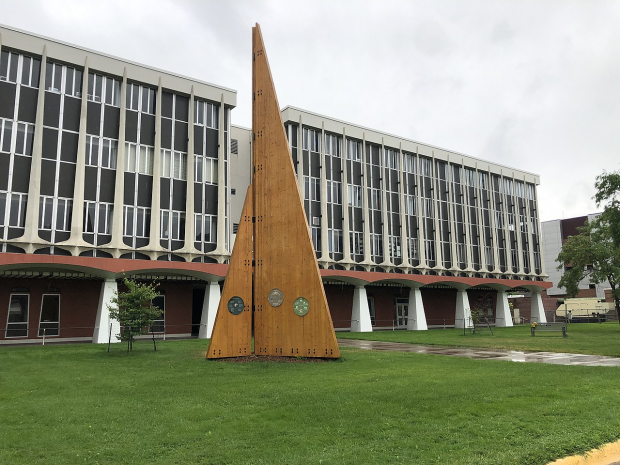University of Montana's MOSSAIC Program Flourishes, Empowering Neurodivergent Students
By Joy LiwanagHigher education is evolving to embrace diversity in its many forms, including the increasing number of students with specific learning needs.
According to the National Center for Education Statistics, approximately one in five undergraduate students has a physical, mental, or emotional disability. Additionally, an estimated 50 million adults in the U.S. are neurodivergent. This demographic shift has prompted colleges and universities to develop programs that foster a more inclusive environment for all students, regardless of their learning differences.

(Photo : WIKIMEDIA COMMONS / Steven Pavlov)
Campus Culture and Inclusion
Creating a campus environment that is inclusive and supportive of students with diverse learning needs necessitates participation from all members of the campus community, including fellow students. The University of Montana's flagship campus has been at the forefront of this effort, with campus leaders relying on the expertise and energy of student learners to promote campus initiatives and support this population of learners.
The MOSSAIC (Mentoring, Organization, and Social Support for Autism/All Inclusion on Campus) program at the University of Montana is a shining example of how peer support programs can make a difference. Launched in 2012 and led by Jennifer Schoffer Closson, an associate clinical professor in the Department of Speech, Language, and Hearing Sciences, MOSSAIC empowers peer leaders to provide education on neurodivergence and promote a sense of belonging for students with autism and related disorders.
READ MORE: Survey Reveals Escalating Workloads Impacting Mental Health Of Higher Education Professionals
Program Components and Impact
MOSSAIC has three core program components:
- Peer-to-peer social support: Around 12 participants regularly partake in social evenings, creating a sense of community and friendship among neurodivergent students.
- Direct speech and language services: Three students access direct services to support executive functioning, social understanding, and language-based skills, enhancing their academic experience.
- Campus-wide education and support: Educational events organized by MOSSAIC help raise awareness and understanding of neurodiversity among the broader student body.
Through these components, MOSSAIC has had a profound impact on its participants. A recent survey revealed that students enjoy the regular Wednesday events because they provide a space to be around other autistic students, making the events more relevant to them. This sense of community and belonging is invaluable for students who may often feel marginalized or isolated.
Peer Leadership Opportunities and Expansion
More recently, MOSSAIC has expanded its focus to include peer leadership opportunities. Three of the peer supporters now hold leadership roles, each contributing to the program in a unique way. One is in charge of organizing social events, another runs a game club, and the third focuses on outreach, helping to raise awareness about neurodiversity on campus.
Students involved in MOSSAIC have also taken part in various campaigns to promote neurodiversity, such as creating sensory kits for classrooms. These kits include light covers, fidget toys, wiggle cushions, and educational materials, helping to create a more inclusive learning environment for all students.
In addition to these initiatives, MOSSAIC is collaborating with the Communicative Sciences and Disorders division to create a zine called "Our NeuroDiverse World." This zine aims to raise awareness about neurodiversity and will be distributed across the university campus, furthering the program's mission of promoting inclusivity and understanding.
Student Experiences and Development
For students like Brylea Beye, who serves as the student director of MOSSAIC, the program has been transformative. Beye is responsible for organizing events and has found the experience invaluable in developing relationships with her peers and honing her professional skills, such as empathy, patience, and confidence.
Overall, peer support programs like MOSSAIC play a crucial role in promoting inclusivity and understanding on college campuses. By empowering students to take an active role in supporting their peers, these programs not only benefit the students directly involved but also contribute to a more inclusive and welcoming campus culture for all.
RELATED ARTICLE: NCAA Mental Health Survey Shows Post-Pandemic Disparities In Student Athletes








